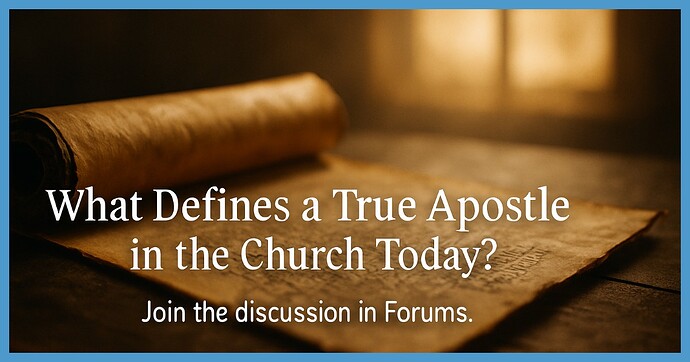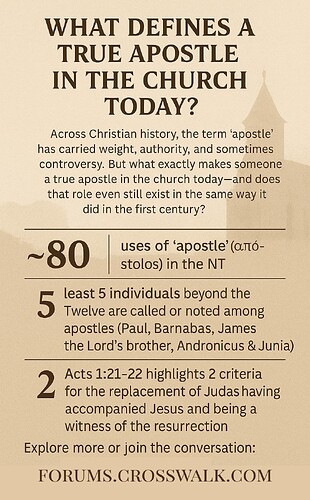What Defines a True Apostle in the Church Today?
Across Christian history, the term “apostle” has carried weight, authority, and sometimes controversy. But what exactly makes someone a true apostle in the church today—and does that role even still exist in the same way it did in the first century?
#ApostolicAuthority #ChurchLeadership #BiblicalTruth #christianforums #crosswalkforums #forums #crosswalk #faithcommunity #faithforums
In the New Testament, apostles were foundational figures—eyewitnesses of the risen Christ, charged with spreading the gospel and planting churches. Their words carried the authority of God’s revelation, and their ministry helped establish the early church.
But in recent years, some Christian leaders and movements have revived the language of apostleship, claiming that modern-day apostles continue to play an active, authoritative role in guiding the global church. Others strongly disagree, warning that such claims risk undermining the sufficiency of Scripture or confusing pastoral leadership with apostolic authority.
This raises pressing questions: Can someone today rightly claim the title of “apostle”? Does the role extend beyond the biblical era, or was it unique to those who personally walked with Jesus? If apostleship is ongoing, how do we test and discern who is truly sent by God and who may be misleading the church?
The tension touches on church governance, authority, and how believers weigh new voices against the biblical foundation already laid. Whether you see apostleship as a past office or a present reality, the conversation challenges us to think carefully about spiritual leadership and what it means to follow Christ faithfully in a divided world.
Read more here:

